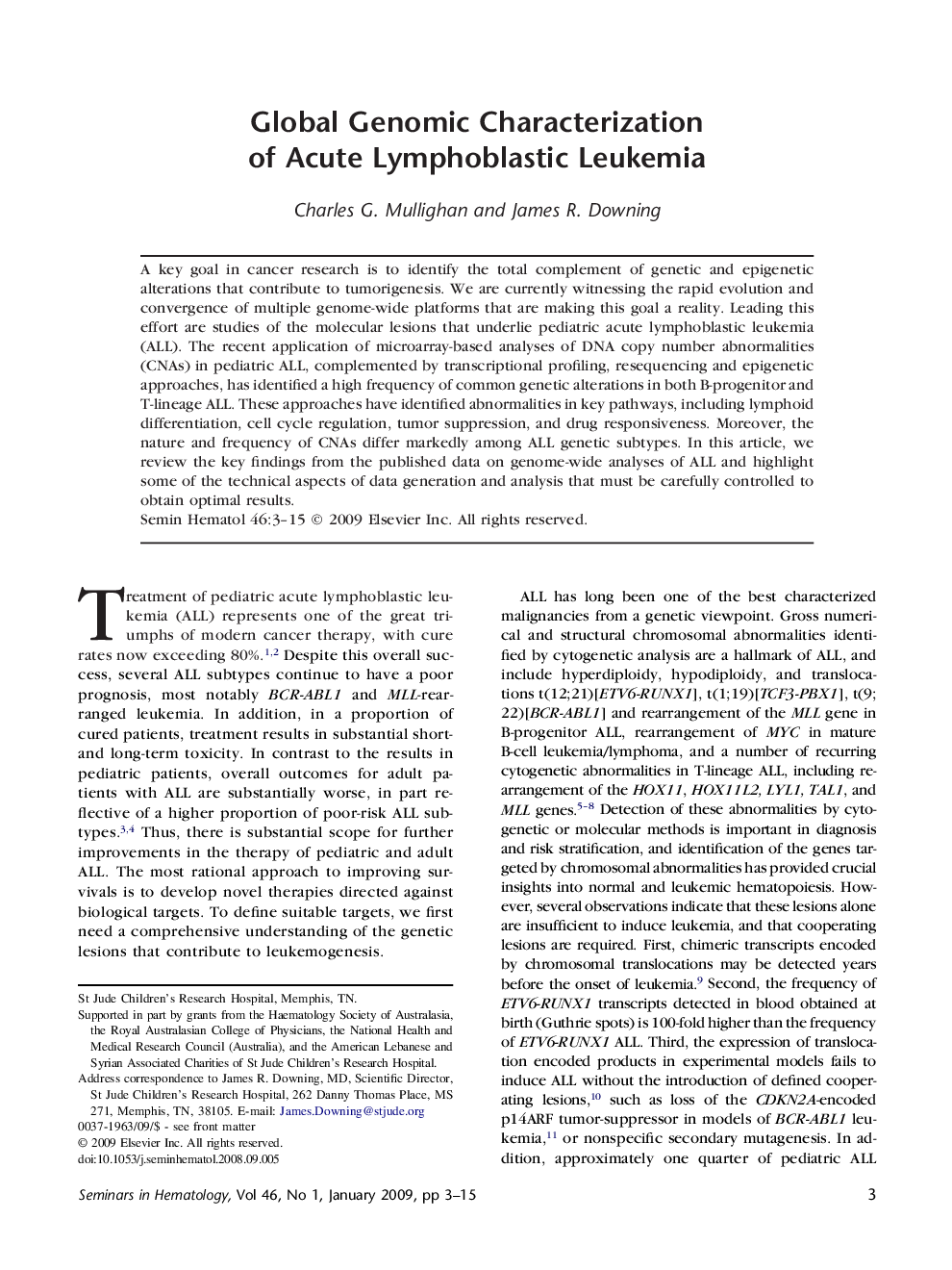| Article ID | Journal | Published Year | Pages | File Type |
|---|---|---|---|---|
| 3333945 | Seminars in Hematology | 2009 | 13 Pages |
Abstract
A key goal in cancer research is to identify the total complement of genetic and epigenetic alterations that contribute to tumorigenesis. We are currently witnessing the rapid evolution and convergence of multiple genome-wide platforms that are making this goal a reality. Leading this effort are studies of the molecular lesions that underlie pediatric acute lymphoblastic leukemia (ALL). The recent application of microarray-based analyses of DNA copy number abnormalities (CNAs) in pediatric ALL, complemented by transcriptional profiling, resequencing and epigenetic approaches, has identified a high frequency of common genetic alterations in both B-progenitor and T-lineage ALL. These approaches have identified abnormalities in key pathways, including lymphoid differentiation, cell cycle regulation, tumor suppression, and drug responsiveness. Moreover, the nature and frequency of CNAs differ markedly among ALL genetic subtypes. In this article, we review the key findings from the published data on genome-wide analyses of ALL and highlight some of the technical aspects of data generation and analysis that must be carefully controlled to obtain optimal results.
Related Topics
Health Sciences
Medicine and Dentistry
Hematology
Authors
Charles G. Mullighan, James R. Downing,
